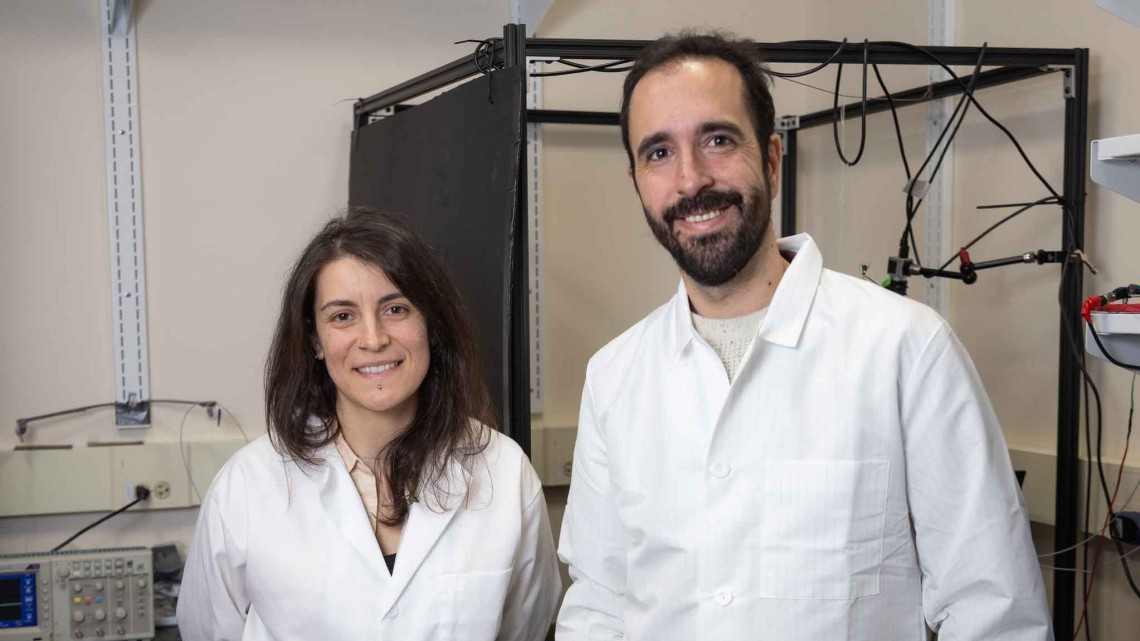
Azahara Oliva, left, and Antonio Fernandez-Ruiz, both assistant professors of neurobiology and behavior, are working to discover how brain circuits support learning and memory.
News directly from Cornell's colleges and centers
Researchers create custom technology in quest to understand memory
By Kathy Hovis
A pair of researchers in the Department of Neurobiology and Behavior are designing new technology and research methods to discover how brain circuits support learning and memory.
The Brain Computation and Behavior Lab, led by Antonio Fernandez-Ruiz, an assistant professor and Nancy and Peter Meinig Family Investigator in the Life Sciences in the College of Arts and Sciences, and Azahara Oliva, also an assistant professor in A&S, studies both spatial and social memory in rodents using a combination of methods — naturalistic behavioral tasks, in vivo electrophysiology, calcium imaging, optogenetic manipulations (using a combination of light and genetic engineering to control brain cells) and anatomical circuit mapping.
“I think of the brain as a complex system, with so many components coordinating in a precise balance for the system to work,” Oliva said. “But this system, is not only the sum of its parts, once is all functioning, very interesting processes emerge, such as the ability to generate memories - we remember things since very early on in our life, yet we never stop learning new stuff.”
Read the full story on the College of Arts & Sciences website.
Media Contact
Get Cornell news delivered right to your inbox.
Subscribe
